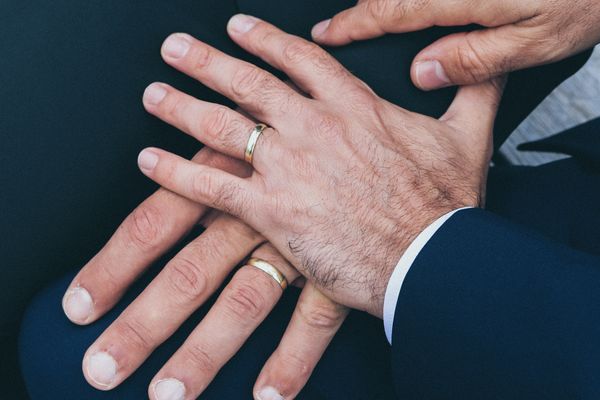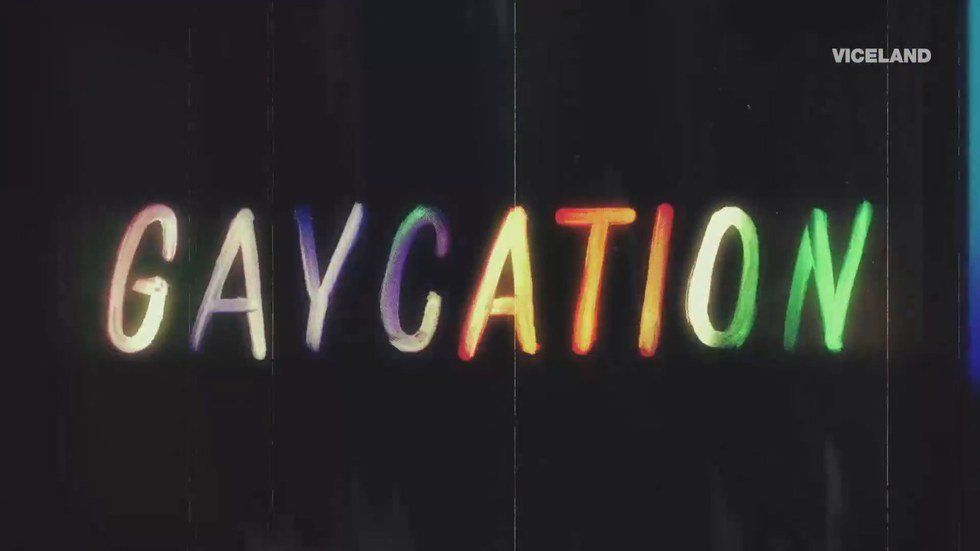When I first heard about the new channel Viceland launching the television series, "Gaycation" I was very excited. I'm all for progress and when I first watched the trailer I couldn't wait to see more. But then I took a step back and really thought about what I was planning to watch. These are white people who are going to go around the world to talk to who I thought would be people of color about their experiences being gay. And I was pretty right.
I have watched the first three episodes of "Gaycation" thus far and they're all the same aside from the different countries and cultural practices. Ellen Page and her "best friend" Ian Daniel travel the world together to understand how LGBT(Q) people live life around the world. This is a great concept on its own but it's very exclusionary.
For one, Page uses the acronym LGBT (sometimes Q) throughout the series so far, but she's only ever talking to or about gay men and lesbians. Do people not get that the 'B' in that actually stands for something? The word bisexual has yet to even be said and so, therefore, there's probably never going to be an effort to mention anyone who is attracted to more than one gender. However, when Page wants to talk about people in general and include everyone, she just calls them queer. Otherwise, everyone is either gay, a lesbian, or transgender.
Also, in terms of being transgender, the show only seems to depict trans-women who pass. While passing is a subjective term, the women shown so far have been able to have some kind of reassignment surgeries. In the episode where the duo went to Brazil, the trans-women shown at least had top surgery to give them breasts and stereotypical feminine facial features. There are also trans-men or non-binary trans-people shown. However, while in Japan, the two did go to a bar where mostly straight men went to cross dress. There was no mention as to the gender identity of these men.
In Jamaica, a country with reported violence against those whom don't conform to sexuality and gender standards, showed slums where young people who were kicked out of their communities went to live. Page, Daniel and the crew went to interview some of the people who were able to talk about how they were robbed of their homes because they like to "dress as a girl" or "wear their hair and makeup." But they were never called transgender although that could be the proper term for them. They were just bunched together with the rest of the queer community.
In Japan, two women were labeled by a term that translates to "Rotten Women" in English. Rotten Women are women who enjoy homoerotic encounters between men. From Page and Daniel's perspective, it looked like they just brushed off the Rotten Women as people who are using sex between two men to get off themselves; but a deeper look shows that these women have created a community for themselves and are bonding over a shared interest. I don't mean to say this to discredit any of the disrespect gay men may feel but there can be a positive side to this phenomenon that was not displayed on the show.
While I do like the idea of the show, I do feel like this is geared towards white audiences who want to act like they understand the struggle that gender and sexuality nonconforming people of color go through. I'm worried that some of the people who are interviewed on the show may feel as if they were exploited or used to get the "right" point across. It certainly is a television show for one, not really for all.





















